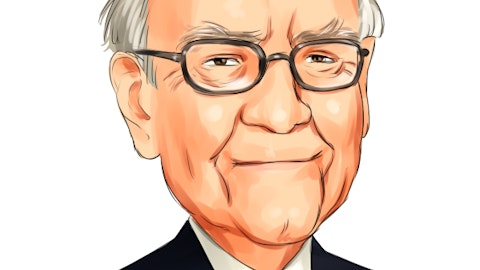Steve Jobs once said, “A lot of times, people don’t know what they want until you show it to them.” Apple Inc. (NASDAQ:AAPL) has always innovated on this premise. It has brought the tech giant much success. But lately, success has been hard to come by; the stock has plummeted 40% from an intraday high of $705 last September.
The sentiment bubble
Apple Inc. (NASDAQ:AAPL) has a problem that every company wants — a cash hoard of $137 billion, but no epic idea of what do with it. I’ve done my part as a shareholder; the company now has all of my routing numbers. I’m still waiting to hear back. But in the meantime, here comes David Einhorn, the outspoken hedge-fund manager at Greenlight Capital. He’s got a few ideas of his own. One in particular is called “iPrefs,” which has brought him much scrutiny.

It requires, however, much more than just a cursory view of Apple Inc. (NASDAQ:AAPL)’s status to appreciate the company’s $137 billion cash pile in relation to the ebb and flow of market sentiment. Consider this: From January 2009, when the stock traded at $82.33, to its recent intraday high of $705, shares gained 756% in just four years. That’s an absurd average of almost 20% per month for 44 consecutive months. Yet, the P/E ratio never fully reflected confidence — dropping from 35 to 9, where it is today. But the cash kept rising. What’s the problem? The company was carrying too much cash.
The market punished Apple Inc. (NASDAQ:AAPL) for this by discounting the cash and its future value. By contrast, Texas Instruments Incorporated (NASDAQ:TXN) , which has 43% more debt than it does cash, is making new 52-week highs. I’ve been scratching my head around this for quite some time. This is despite struggles with declining revenue. There’s no way TI deserves a higher P/E than QUALCOMM, Inc. (NASDAQ:QCOM), much less Apple. Same goes for International Business Machines Corp. (NYSE:IBM), which has $33 billion in debt and only $11 billion in cash. It’s not a great ratio. But the market forgives IBM’s highly levered balance sheet because the company is seen as “shareholder-friendly.” For that matter, IBM’s 85% return on equity is one of the best on the market.
Coming to terms
There are two lines of thinking here — what management sees and what the Street wants. You can chose to focus on the unit figure misses, but management sees an operation that is posting record revenue of $54 billion and sales of more than 75 million iOS devices in one quarter. There’s no urgency to change. Despite the lost “mojo,” the company still makes tons of money. And Cook deserves credit for growing robust free cash flow. Even Einhorn can’t dispute that.





